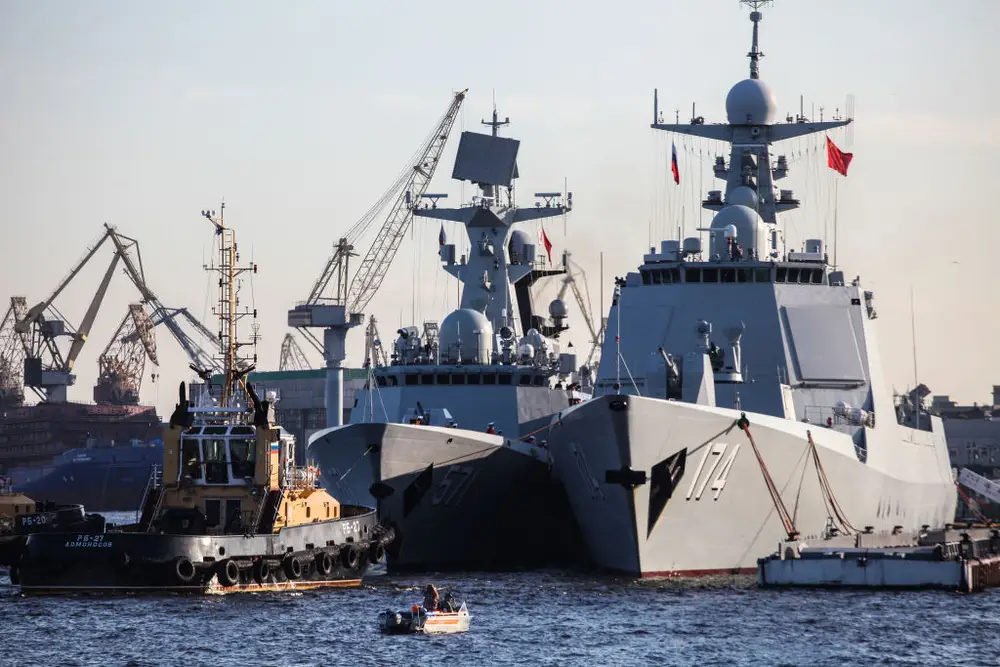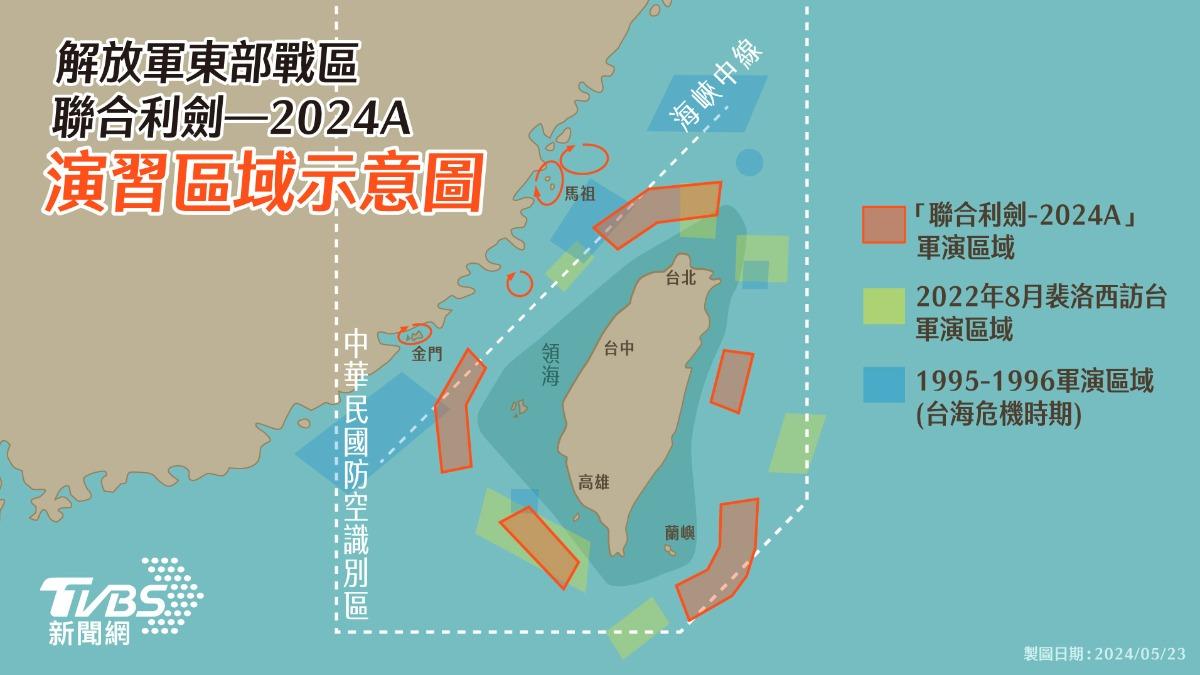"Severe punishment": China surrounds Taiwan to rehearse invasion of island

The Chinese army began large-scale military exercises around Taiwan on Thursday, 23 May, just days after the island's newly elected president, Lai Ching-teh, took office.
Here's What We Know
This is not the first time that China has conducted such large-scale exercises around Taiwan, but this year's are different in scale and proximity to the island. Beijing is sending an unmistakable message to Taipei, setting a sour tone for China-Taiwan relations at the beginning of the new president's term.
The Joint Sword-2024A exercise began on Thursday morning and will last for two days. The exercise focuses on "joint patrols of sea and air combat readiness, joint seizure of comprehensive battlefield control, and joint precision strikes on key targets," according to Chinese state media reports.

The Taiwanese Armed Forces reported that China had deployed 33 aircraft, 16 coast guard ships and 15 navy ships to the exercise. In addition to surrounding Taiwan's main island, Chinese forces also conducted exercises in the waters around Kinmen, Matsuri, Wuquiu, and Dongyin islands.
The Chinese exercises include simulated fighter strikes with live ammunition and training with various naval vessels.
Taiwan's armed forces responded to China's actions by sending land, sea and air forces to closely monitor the exercises. The country's Ministry of Defence sharply criticised the exercises, calling them "irrational provocations and actions that undermine regional peace and stability".
The Chinese military described the drills as "a severe punishment for the separatist acts of the Taiwanese independence forces". They also called it a "stern warning against interference and provocation by external forces" such as the United States and Japan.
Beijing's rhetoric towards Taiwan is quite typical, especially after the election of a new president, Lai Ching-teh, who supports a tougher policy towards China.
Source: Business Insider